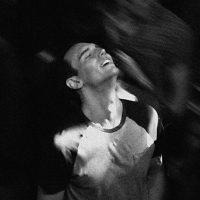A master at depicting insightful meditations on film, director Wim Wenders is back with a quiet reflection on garnering meaning from a simple life. Set in contemporary Tokyo, Perfect Days reveals Hirayama (played by Koji Yakusho), an unassuming protagonist and his consistent daily routines. Waking up at the same time each morning, watering his collection of plants, purchasing a coffee from the vending machine outside his apartment and making the rounds as a toilet cleaner while listening to 70’s and 80’s cassette tapes during his drives, Hirayama shows no qualms regarding the simple and sincere pleasures he relishes in his day to day interactions.
With an ease of passing his days without so much as uttering more than a handful of phrases, Hirayama’s thoughtful and pensive expressions make it obvious that he is a natural born observer. We are not directly privy to his inner dialogue but recognize there’s no shortage of impressions and inquisitions taking place in his interior life. Largely solitary in his day to day regimens, our protagonist doesn’t seem at all bothered by uttering less and listening more. Taking film snapshots of the trees and their shadows while on his lunch break, Hirayama is child-like in his fascination with his surroundings that most distracted adults would certainly take for granted. Rather than viewing his job cleaning public restrooms as something to deplore or escape from, he takes great pleasure in scrubbing and mopping each individual toilet and sink to pristine condition. As the observers of Hirayama’s life, we can’t help but appreciate much of the beauty he savors moment to moment, perhaps even some jealousy of his ability to tune out so much noise in the world and live by such simplistic means. The individuals that we are introduced to through Hirayama either seem repelled by his lifestyle (a mother washing her son’s hands in disgust after helping her to reunite with her lost son in the park), or absolute intrigue (a surprise visit from his niece, Niko, and her enchantment with his analog musical and reading artifacts). “Next time is next time, now is now”, the two repeatedly chant as they ride their bicycles together throughout the city.
As much as Hirayama seems to live his life moment to moment, we also recognize that any changes to his daily rituals stir up his anxiety. When his younger co-worker abruptly quits his job, Hirayama is frazzled by the double duty he’s expected to take on, having to forego his daily beer and meal at his local bar. A homeless man trades in his usual spot at the park to a different intersection of town, lost amidst the throngs of people. Hirayama’s sense of equilibrium is thrown off by the change of relations to particular individuals in his life, despite seeming like quite the introverted loner. His expressions and emotions overwhelm him the most when he’s confronted by those he cares about; an interaction with his sister that he hasn’t spokedn to in years, or by a stranger’s dying confession.
Wenders isn’t here to convince his viewers that a particular life path is better than the next one. Instead, Perfect Days seamlessly intertwines the notion of staying conscious to living each of our moments fully with the recognition that changes in life, grand and minute, are absolutely inevitable. And with the two comes an appreciation to embrace our humanity fully, with all its joys, sadnesses, disappointments and everything in between.
You can watch Perfect Days on the big screen at Austin Film Society today through Thursday, February 22nd. Tickets for Perfect Days can be purchased here.





